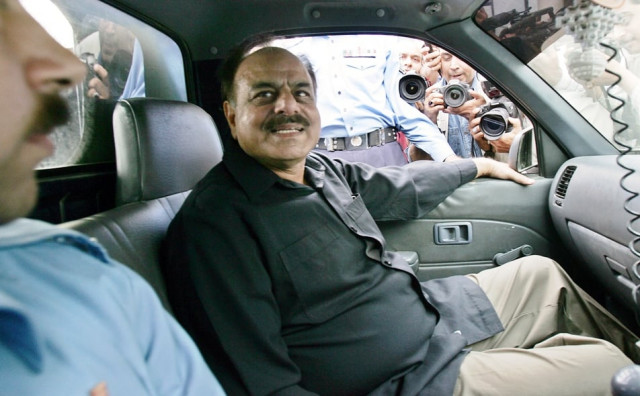The death of an ideologue
He will remain a controversial figure, his legacy differently interpreted by all sides, nationally and internationally

A file picture taken on November 4, 2007 shows Hamid Gul in a police van in Islamabad. PHOTO: AFP
After his retirement as head of the premier intelligence agency, the ISI (which he ran for two years 1987-89), he found a second career as a pundit-at-large and all-purpose security consultant. He also found politics in the late 1990s and remained close to the Taliban until the end of his life. His very considerable following in Pakistan is closely allied to the drift towards extremism of the last 20 years, and whether his death will do anything to arrest that trend is too early to say. For many, his espousal of a radical ideology is exactly what Pakistan needed to lead it away from the swamps it perennially inhabits; for others, Hamid Gul was the creator of the very swamps which others see his ideology as leading us out of. He will remain a controversial figure, his legacy differently interpreted by all sides, nationally and internationally. How much of a patriot he really was, only history will decide.
Published in The Express Tribune, August 18th, 2015.
Like Opinion & Editorial on Facebook, follow @ETOpEd on Twitter to receive all updates on all our daily pieces.















COMMENTS
Comments are moderated and generally will be posted if they are on-topic and not abusive.
For more information, please see our Comments FAQ